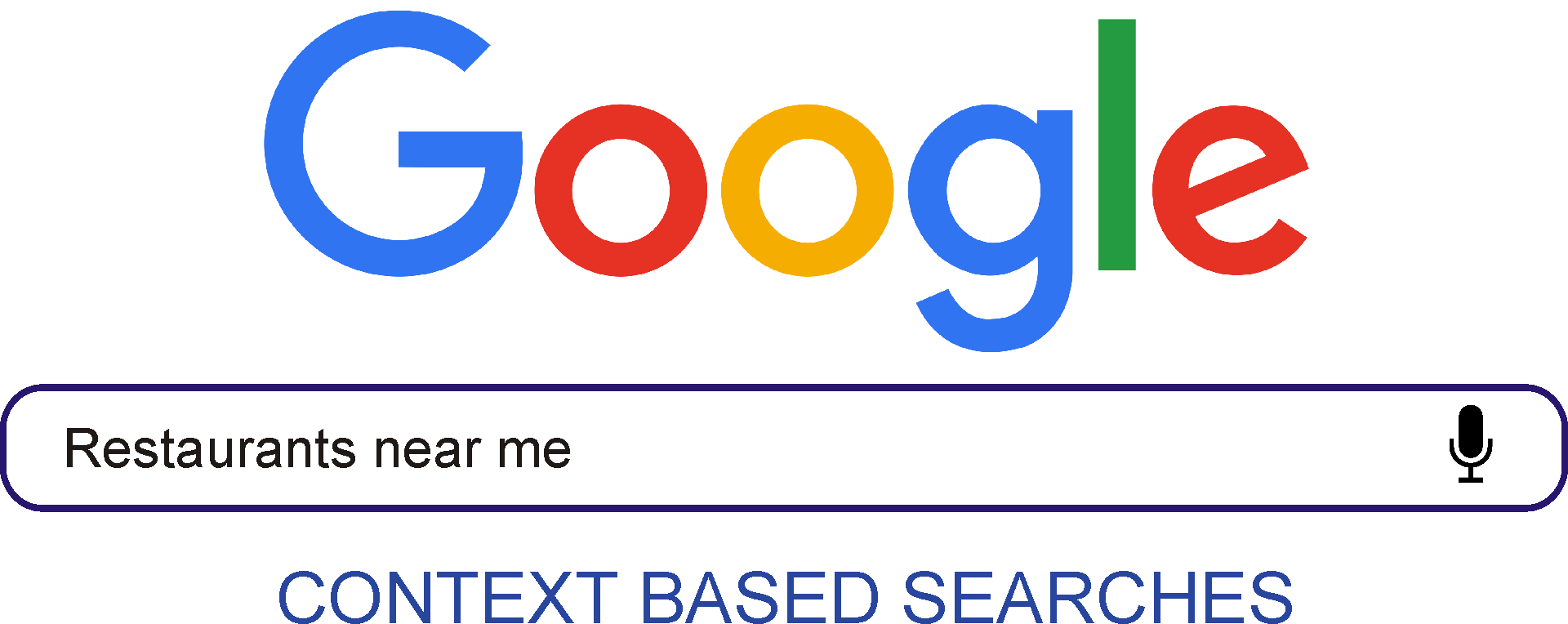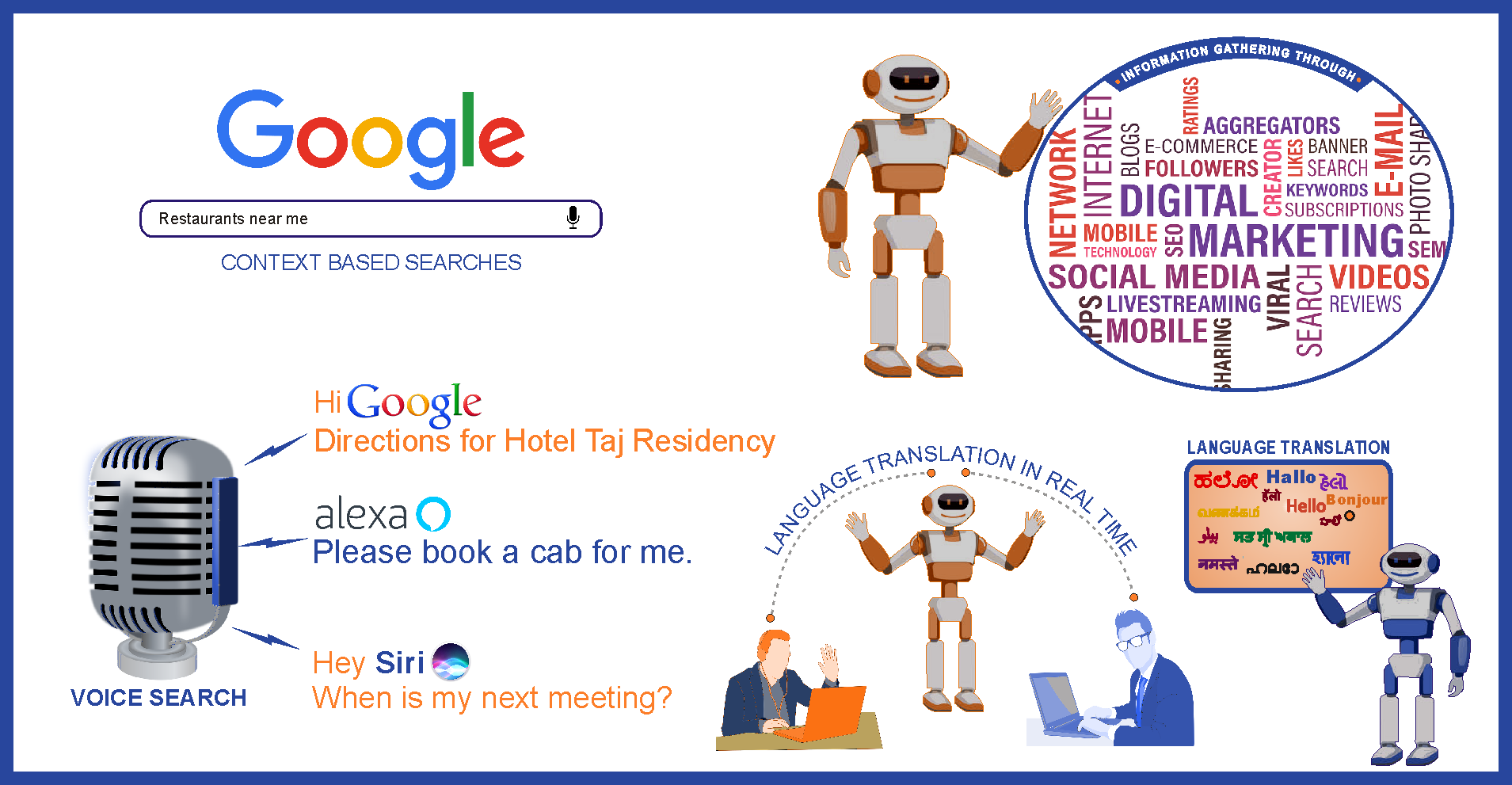Two years back if I wanted to buy an office bag, I’d have simply typed “office bags” in the Google search and got a list of bags. But, I have specific requirements of how my office bag should be and hence, I look for more personalized search results. I say “Office bags black in color in medium size“. And like many others, I do this search sitting on my sofa from my Smartphone through one click. To this search query, I get results of the sites and apps that sell products which exactly match my query. All this is possible through AI driven natural language search.
Searching has changed over years. Today, people no longer type generic keywords. They know that if they want fast and correct results, they need to be specific in what they want and type precise terms when searching. Usage of Me and I have increased as they provide more relevant and personal content. Personalized searches have become more as personal advisors and trusted partners for the users as consumers believe that these advisors understand better and answer all their queries with right answer at right time.
 Search engines like Google, Yahoo, and Bing have come a long way by improving their search feature. Today, searching is in line with our day-to-day conversation and this is possible through Natural Language Search. It includes voice search and text search in local language. Users are happy when they get exact answers for their queries and get results for what they want. Smart searches using natural language allow accurate searching and generate specific results, thereby leading to user satisfaction.
Search engines like Google, Yahoo, and Bing have come a long way by improving their search feature. Today, searching is in line with our day-to-day conversation and this is possible through Natural Language Search. It includes voice search and text search in local language. Users are happy when they get exact answers for their queries and get results for what they want. Smart searches using natural language allow accurate searching and generate specific results, thereby leading to user satisfaction.
 Earlier consumers had to think which keywords should be typed to get what they want and often the results were not as expected. But, with AI driven natural language search, the focus of the search shifts from keywords to meaning of the words. The e-commerce sites today are using more of semantic search, which means the search results generated have a connection with the original search terms rather than typing keywords. Users across the globe use more than a million English words to search different things and this is the reason why context-based search is gaining more importance and is proving to be more useful in giving accurate results.
Earlier consumers had to think which keywords should be typed to get what they want and often the results were not as expected. But, with AI driven natural language search, the focus of the search shifts from keywords to meaning of the words. The e-commerce sites today are using more of semantic search, which means the search results generated have a connection with the original search terms rather than typing keywords. Users across the globe use more than a million English words to search different things and this is the reason why context-based search is gaining more importance and is proving to be more useful in giving accurate results.

AI driven natural language search example
Half Price Drapes is a US brand that uses Klevu search on its website. This search is a great example of how context-based search delivers optimum results. In the below screen shot you can see that the search term is "floral sheets" and we get the accurate results about various curtains that have floral prints. Although, the typed keywords are not present in the product names and neither in the description content, but the system has been smart enough to understand the ‘search term’ and gave result accurately through AI-based semantic search ability.
AI driven natural Language search has the ability to learn common misspellings, similar brand names and other common issues that occur while searching. It has self-learning abilities that helps brands to understand customer intent well in advance. It reduces the barriers to gathering information via a search query.
Customer experience is another area where AI driven natural language search can play a key role. Positive customer experience means enhanced productivity and increased revenue along with loyal customers. When a customer visits a site and searches for a product, if he/she receives irrelevant search results or no results page, then the customer will simply leave your site and may be never come back. Losing a customer means loss in revenue. Instead, understanding the user intent and what he/she is trying to search and displaying accurate results quickly will make the customer happy giving them a great experience.
AI driven natural language search or smart search delivers more than just accurate results. It helps in a streamlined purchasing process, satisfying customers thus translating everything into significant gains.

